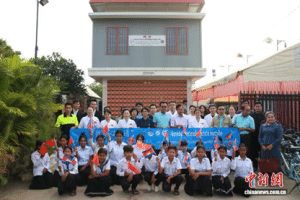Editor’s Note:
this article was originally featured in the September 2016 issue of Alliance Magazine
China is home to some 500 billionaires with a collective net worth of some $830 billion. In spite of this, says a UNDP report, Unleashing the Potential of Philanthropy in China, charitable giving in China in 2014 was only $16.74 billion – just 4 per cent of the level in the US.
The number of foundations in China has grown by 60 per cent over the last five years, reflecting increasing personal wealth and new legislation making it easier for foundations to set up and to raise and distribute funds. In addition, the number of Chinese citizens who give money to charity is growing every year, as is the overall amount of money donated by companies.
Yet aspects of the legal and policy framework remain obscure and public distrust in the sector is still considerable, following recent scandals. To counter this, argues the report, more needs to be done to simplify bureaucratic procedures and allow smaller, independent foundations to play a role in the sector. Most importantly, incentives like income tax rebates or tax-free donations need to be created to encourage individuals and corporations to donate to charity. Finally, the report recommends a renewed focus on transparency and accountability in the sector, as well as allowing the market to play a bigger role in philanthropy to help raise standards and support innovators, such as internet and social media players.
In this spirit, UNDP China also announced, at the launch of the report in May, a new partnership with the Tencent Research Institute, which will explore the role of the internet and e-giving in transforming philanthropy. According to Meng Zhaoli of Tencent, the transparency offered by the internet can help rebuild trust in the sector, at the same time as it ‘democratizes and diversifies philanthropy by enabling everyone to take part’.
For more information
http://tinyurl.com/ChinaPhil



